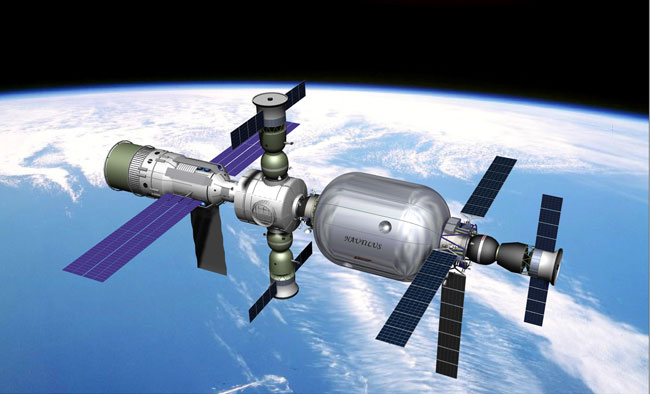New $50 Million Prize for Private Orbiting Spacecraft

While a team of aerospace engineers takes aim this week on the $10 million Ansari X Prize competition for privately developed suborbital spaceflight, a Nevada millionaire is planning an even loftier contest.
Robert Bigelow, chief of Las Vegas-based Bigelow Aerospace, is apparently setting higher goals for private spaceflight endeavors with America's Space Prize, a $50 million race to build an orbital vehicle capable of carrying up to seven astronauts to an orbital outpost by the end of the decade, according to Aviation Week and Space Technology.
Bigelow told Aviation Week that not only would America's Space Prize winners secure the $50 million purse, half of which he's putting up himself, but they'd also snag options to service inflatable space habitats under development by Bigelow Aerospace.
Much like the Ansari X Prize, America's Space Prize would require participants to demonstrate a quick turn around in their launch capabilities, Bigelow said.
The Ansari X Prize challenges participants to develop a reusable three-person spacecraft capable of reach an altitude of at least 62 miles (100 kilometers) twice in two weeks. The first to do so by the end of the year wins $10 million and a trophy.
The SpaceShipOne spacecraft built by aviation pioneer Burt Rutan and his firm Scaled Composites is poised to make its first X Prize flight on Sept. 29. On its heels is Wild Fire Mark VI, a spacecraft built by the Canadian GoldenPalace.com/da Vinci Project led by Toronto's Brian Feeney. The Canadian team's Oct. 2 launch schedule was revised last week to an unreleased launch date.
Bigelow's plan would challenge teams to build spacecraft capable of more than just suborbital hops, such as maneuvering and docking abilities with Bigelow habitats more than 100 miles (160 kilometers) above Earth and reentering the Earth's atmosphere at 17,500 miles (28,163 kilometers) an hour, Aviation Week stated.
Breaking space news, the latest updates on rocket launches, skywatching events and more!
The first test version of Bigelow's inflatable modules is expected to launch in November 2005.
NASA has announced its own intentions to offer cash prizes for private space accomplishments through its Centennial Challenges office, which may offer prizes that range from $250,000 to $30 million. Potential challenges could include soft lunar landings and asteroid sample return missions, NASA officials have said.
- Live Coverage of X Prize Flight Wednesday
- Virgin Galactic to Offer Public Space Flights
- Now Boarding: Zero-G Flights for Everyone
- The Future of Travel
- The Rise of Space Tourism

Tariq is the award-winning Editor-in-Chief of Space.com and joined the team in 2001. He covers human spaceflight, as well as skywatching and entertainment. He became Space.com's Editor-in-Chief in 2019. Before joining Space.com, Tariq was a staff reporter for The Los Angeles Times covering education and city beats in La Habra, Fullerton and Huntington Beach. He's a recipient of the 2022 Harry Kolcum Award for excellence in space reporting and the 2025 Space Pioneer Award from the National Space Society. He is an Eagle Scout and Space Camp alum with journalism degrees from the USC and NYU. You can find Tariq at Space.com and as the co-host to the This Week In Space podcast on the TWiT network. To see his latest project, you can follow Tariq on Twitter @tariqjmalik.
